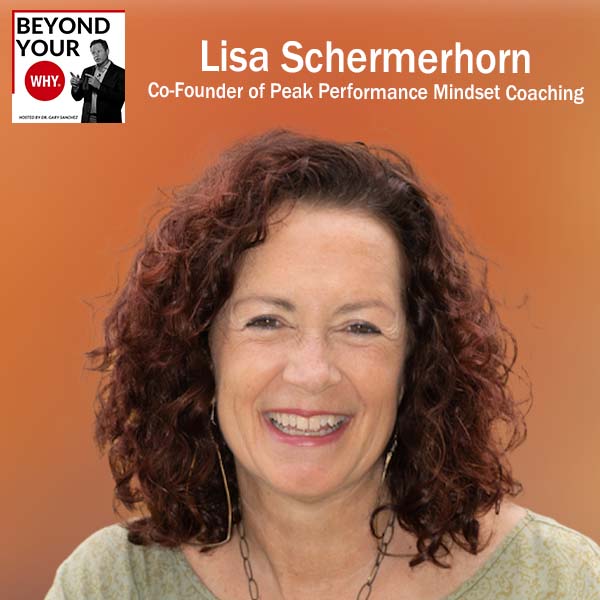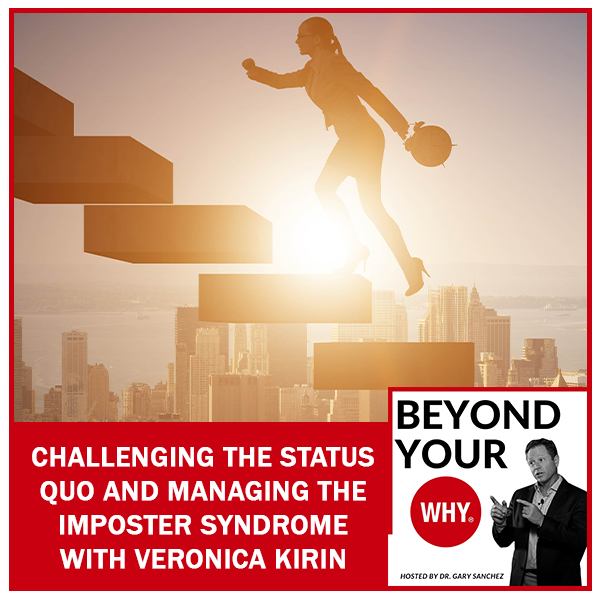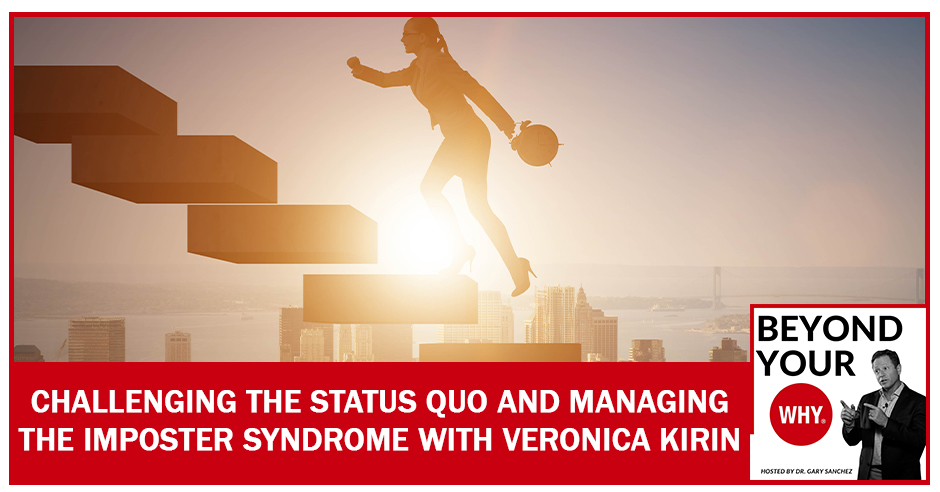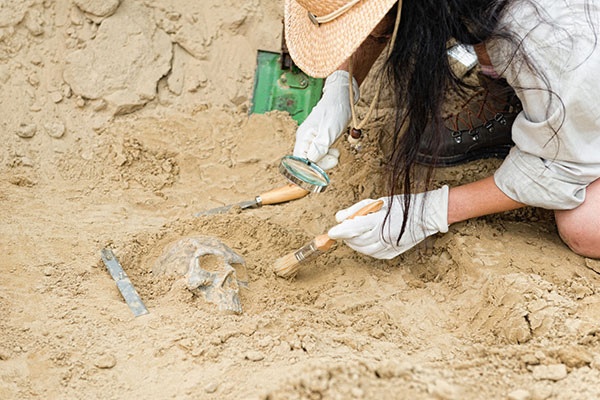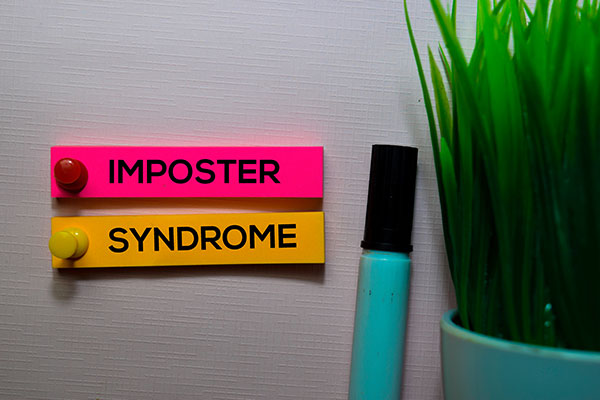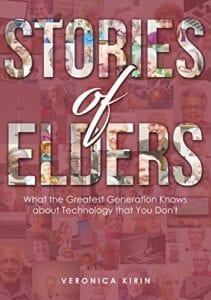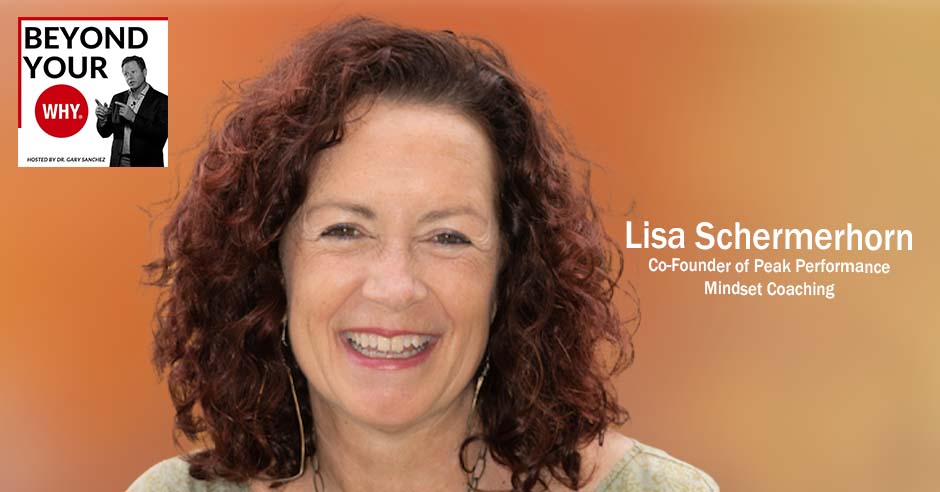
Are you someone who doesn’t believe in following the rules or drawing inside the lines? You want things to be fun, exciting, and different – you rebel against the classic way of doing things. Do you typically have eccentric friends and eclectic tastes? Then this episode is for you. Lisa Schermerhorn joins Dr. Gary Sanchez as she talks about her WHY and how she is challenging the status quo and thinking differently. Lisa is a transformational leader, award-winning speaker, and expert in human behavior, leadership, and personal development. She also dives into releasing beliefs and emotions that don’t serve you, forgiveness, and trusting yourself more. We all have different whys, and everyone is different because of that. It’s important to honor that special thing. Tune in and get inspired to find better ways of thinking, doing, and understanding.
—
Watch the episode here
Listen to the podcast here
Challenging The Status Quo: Finding Better Ways Of Thinking, Doing And Understanding With Lisa Schermerhorn
In this episode, we’re going to be talking about the WHY of Challenge, to challenge the status quo and think differently. If this is your WHY, then you don’t believe in following the rules or drawing inside the lines. You want things to be fun, exciting, and different. You rebel against the classic way of doing things. You typically have eccentric friends and eclectic tastes because, after all, WHY would you want to be normal? You love to be different, think different, and you aren’t afraid to challenge virtually anyone or anything that is too conventional or typical for your tastes. Pushing the envelope comes naturally to you.
I’ve got a great guest for you. Her name is Lisa Schermerhorn, and she is a transformational leader, award-winning speaker and expert in the fields of human behavior, leadership, and personal development. She also trained in the Winner’s Mindset with Bob Reese, the former head trainer for the New York Jets, and helped a professional golfer win Golfer of the Year. Lisa was a VP of Business Development for an innovative startup company using virtual reality to help clients with pain reduction, memory loss, and stress reduction.
As a certified hypnotherapist and master practitioner of Neuro-Linguistic Programming, NLP, she helps entrepreneurs and high performers get from where they are to where they want to be much faster than conventional coaches. Lisa is also a Why.os Certified Coach, helping people discover their WHY and apply it to their life, both personally and professionally. Lisa launched her new book titled In Every Belief Is A Lie. Lisa, welcome to the show.
Thank you so much. Every time you read the definition of Challenge, I get chills. It’s so fitting. I tell people how much finding that out changed me because when you’re a challenge, you’re an outlier and different. As a child, I learned differently. I was very creative. I didn’t fit in very well. I struggled a lot, and I always thought that I was broken and something was wrong with me.
There was a belief that I held onto, even though, as an adult, I realized that I could function and I was smart, but there was always this little part of me that thought I was different and broken. When I got the Challenge WHY, I was like, “Of course.” It helped me own who I am. I don’t know if people be able to see this, but I live in a log cabin on the side of a mountain in the middle of Vermont. I used to live in New York City, so go figure.
Where did you grow up? Take us back to where you grew up. What was your childhood like? What was school like for you? What was it like to be Challenge and not know what it was through elementary, middle, high school, and college? What was that like?
I grew up in New Jersey. I’m a Jersey Shore, but they don’t have the accent. I’m from an upper-middle-class family. I went to kindergarten before the cutoff, so I was one of the youngest in my class. Everyone could read, knew their letters and numbers, and I couldn’t. I struggled. Every year, I was always behind. Every summer, I went to summer school and my self-esteem plummeted. I thought that I was stupid. I didn’t think I was ever going to amount to anything, but I was always very creative and artistic.
I ended up going to a summer program at Rhode Island School of Design. I was accepted there, but my parents were so afraid that I’d be a poor starving artist. They were not about to have me go to art school. I went on to Simmons College in Boston, where I got my Bachelor’s degree in Marketing and Management. I then went to the Garment Center, where I went to work in the fashion industry. I found out how abusive it was.
I worked for one company, and my boss would walk around. We were not allowed to take lunch breaks. We had to stay in our office and be at work at 7:00 in the morning and we couldn’t leave until 7:00 at night. This was in the ‘80s. I was young and impressionable. I thought, “This is the fashion industry. It should be cool.” He would come around, eat our lunches, take a bite of our sandwiches, and get his hands in your fries. I won an award for the worst boss in a magazine. I submitted that.
[bctt tweet=”When you discover someone’s WHY, it helps pinpoint where people’s issues could come up and determine whether or not someone’s done their work.” username=”whyinstitute”]
He was horrible. I was lost. I had no sense of self, who I was, and what I wanted in my life. I ended up leaving and I got very depressed. I was so depressed at one point that I was going to a therapist 2 to 3 times a week, and no one was able to help me. Finally, someone suggested a hypnotist, and I was like, “Don’t they make you quack like a duck? Who would go to a hypnotist?” I was desperate. I tried it and couldn’t believe how quickly they got to the root cause of my issue and helped me release the information I was holding onto. I decided from there that I wanted to be able to do that for other people.
I asked the woman I went to, , “Please tell me all the names of the people that you’ve trained with.” I went on to train. Due to my belief that I wasn’t smart, if you saw the list of certifications, it’s thick. I stacked them all. It was a way for me to go outside the box, be different, and help people who were different. I didn’t realize that that’s what I was doing. I was so desperate to heal myself that I went on and realized that I had the ability to help others.
I went on to study Neuro-Linguistic Programming. Tony Robbins is well known for it. It’s considered the study of excellence, so what they do is they study the people who are on top of the field and how these people think differently than the rest of us. It’s mastery around excellence. I’ve gone around and studied a number of different things on energy medicine and how our energy system works. I studied with different master teachers all over the world.
I ended a 29-year marriage. We’d gone in different directions, and I was terrified to be on my own. My kids were in college, getting ready to graduate. Someone had suggested a firewalk facilitation program where you trained for a week on how to do fire walks with other people. There were two things that I was afraid of, being alone and walking on fire, so I chose to walk on fire first. The week entailed breaking arrows from your neck to your throat, bending a 10-foot piece of rebar from your throat, and walking on four feet of broken glass. Every night, we walked 7 to 10 feet of red hot coals, and to graduate, we had to walk 40 feet of red hot coals.
Did your feet burn?
No, but I was terrified. I thought they would. I was convinced I would end up in the hospital, and those poor people in my class surprised me all week.
What was the benefit of that? I know there are people reading that are going to be thinking, “I’ve thought about doing that. I wondered about it, but what am I going to get out of that?” What did you get out of learning to do that and accomplishing that goal?
Mind over matter, because who could ever think that you could bend a 10-foot piece of rope rebar from your throat? There’s a whole mindset. For instance, when you’re walking on red hot coals, there’s something called Chi Energy, and we all have our own chi energy. The fire has its own energy as well. You have to raise your energy at or above the energy of the fire.
If you can do that, you can walk. I would never let someone walk who’s depressed or down because that’s when people get burned or they’re afraid. When Tony Robbins does his fire walks, he plays loud music and gets people cheering. Do people burn themselves? Yes, you still can. I was terrified of the 40-foot walk. I was having a meltdown. Someone in my group asked me, “How much fire have you walked this week?”
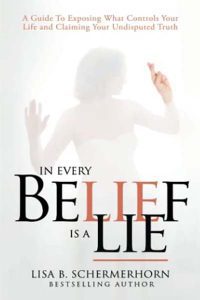
I said, “We started Sunday night. I probably walked about 50 feet already.” He said, “You’ve already walked more than 40 feet. This should be a piece of cake. Go.” It was my easiest walk. I remember when I walked across, I felt like I floated, and I stopped. My feet were warm. They refer to them sometimes as little kisses you get on your feet. I remember having a pair of flip-flops on, and my feet were warm, but I was not burned at all.
That’s amazing that the body can do that, and you did it. You are somebody who has stuff going on that you were dealing with and you were able to do it. Once you are done and you finished this week-long journey, how are you different at the end of that week?
I sat with my fears and thought to myself, “I faced one of my greatest fears, and I survived.” If I’ve been in this marriage for 29 years, I’m not happy, and I’m afraid to be alone, then I need to go towards it and figure it out. When I got home, I had a conversation with my ex-husband about looking at our marriage. It took a couple of months, and we ended up splitting up probably three months later.
I moved to Vermont on my own, didn’t know a soul, had no family here, and didn’t know anyone. I knew that every time I came here, I loved it so much. It felt like home. Every time I went to leave, I would cry. I knew I needed to be here. I didn’t know why. I then found a community here and felt I fit in. We have a saying, “Keep Vermont weird.” There’s got to be a lot of Challenge people here. I found my people.
You’ve moved to Vermont into a log cabin. Did you continue coaching? When did you start coaching other people?
I’ve been doing coaching on and off for many years, but I took it to a whole another level. When I moved up here, I was full-time, but I was working with people in person because people didn’t want to work online, and then COVID happened, which catapulted my work around the world. Now I have clients in Australia, Africa, France, England, Canada, and all across the country. It allowed me to connect and network like I had never done before. I ended up meeting a woman who did a marketing event. She did my WHY.
She introduced me to Dan and did the test, so he ended up doing my whole WHY. I swear to you, it changed my life. I got my business partner Kevin to do it too. What was interesting is we both have similar WHYs. You usually don’t want to team people up with similar WHYs, but we’re both Challenge and Better-Way. He has Contribute. I always know that he’s got my back and takes care of me. He also knows technology. He’s got that background where he gets the foundation done and helps make things happen, whereas I make sense. I’m the visionary, and I come up with all of these ideas, and then he helps me implement them. Even though he’s Contribute, he has some Simplify in him too.
For those of you reading, what Lisa is talking about is her WHY. It is to challenge the status quo and think differently. As you can tell, she thinks outside the box. She doesn’t follow the rules and does it her own way. That’s what’s made her, her. How she does that is by finding better ways, which are all the different courses she’s taken. They’re all better ways of thinking, doing, and understanding.
Ultimately, what she brings are our solutions that make sense, are doable, are logical, and going to work. Your partner has the same WHY and how that you do, Challenge and Better-Way, but his what is to contribute to other people and make a difference in their lives. You two have been a good combination, is what you’re saying.
[bctt tweet=”The more you eliminate the things that are blocking you, the more new opportunities will start showing up.” username=”whyinstitute”]
We complement each other. The difference between us is he owned his Challenge as a kid. He wore it proudly. He talks about some of the outfits that he would wear as a kid. He loves standing out, being different, and he owns it, whereas I didn’t have that confidence. I didn’t have that in me. Even though you can have the same WHY, one of the things I love about being a WHY coach is when you discover someone’s WHY. It helps pinpoint where people’s issues could come up and determine whether or not someone’s done their work or not. It makes my life easier as a coach. It helps me zero in right away and say, “These are some issues you might have based on your WHY.” It helps me get to the root cause of people’s issues fast.
What I’ve found fascinating is if you’re reading and not watching and you don’t know what Lisa looks like or Kevin, her partner, I would have never picked Kevin to be Challenge just looking at him on a screen. I would have created my own narrative around what I thought I was seeing and would have been dead wrong.
However, that’s who he would have been to me and I would have treated him that way. Now that I know his WHY and your WHY is Challenge, that opens up so many different conversations. It opens up my ability to connect, communicate, and understand you completely differently. I’m sure it’s that way for you with your clients.
Absolutely. Here’s the other great thing. He’s also at work in business. When you know the WHY of the other people you’re with, you can create better rapport, and rapport is everything because you create trust. Once you’ve created trust with someone, they’ll allow you to go to places where maybe they wouldn’t with anyone else.
For instance, I had a client who came to me because she wanted hypnosis, but she said to me, “I’ve tried five times, and no one has ever been able to do it.” I was able to establish trust by trying to figure it out. I knew from her language that trust was part of her WHY. I had to go bend over backward to make sure that she could trust me. Once she did, she was under, and we did some major work together. It was powerful. She was astonished because she said, “No one else has ever been able to do this for me.”
Having these tools are so key in helping you, especially with the right way people. When you’re a Challenge person, you’re all over the place, it’s like coloring outside the lines. You then have a right way person who’s very structured and very much about things being a certain way, we can scare them. The structure is important to them and they need things done a certain way to make them feel safe. As a Challenge person, I need those kinds of people to do work that I don’t want to do. I can’t do that. If I had to sit down and do structured accounting or do things, I would do it, but it would take me ten times longer, and it would look like a mess.
Let’s talk about your book for a minute. It came out. Tell us the title and tell us about the title.
I’ve been trying to write this book for almost twenty years. I sat down to blank pages and nothing would come out. I started to sit with my belief system and thought, “I do this for everyone else. I need to do this for me.” That belief system that I’m not smart was a flashlight shining right at me. I made a list of all the things that were holding me back.
Who am I to write a book? I was not a great student. What am I going to do with my grammar? I had all of these questions in my mind. What’s interesting is as I released them, I felt lighter and lighter. With that, if you were to imagine a highway and your destination is at the end of the highway, my highway was filled with boulders.

As I moved the boulders, all of a sudden, the destination was there. For those people who understand the Law of Attraction, whatever you believe, you would attract. Unconsciously, when I believed that I couldn’t do it, then I was blocking myself. The minute I started believing in myself and I knew at an unconscious level that I could do it because I had released all that, everything started to show up. It was unbelievable. The title In Every Belief is a Lie showed up. As soon as I had the title, this book poured out of me. For five months, I wrote nonstop. I rewrote and edited it, and then I’d go back and read. I’m like, “Who wrote this? This is actually pretty good.”
It literally went right through me. It was a labor of love. It included my own personal stories of my own journey of going through my belief systems and how when I allowed myself to let go of these boulders that were holding me back, I referred to them as lies, my whole world changed. Everything changed. It’s scary because it’s vulnerable. I have a lot of personal stories in that book. You open yourself up to criticism and people saying things, but I felt my make sense is so powerful. It comes through in the book because I love to take very complicated information and break it down so it makes sense. A friend of mine read it and said she wanted to do a review. She’s a psychologist.
She said, “You took all of this information that’s so complex that I learned in the textbook, and you made it simple for everyone to be able to understand.” I was like, “There’s my make sense.” It was what I brought to the book. It’s simple steps. There are exercises in it. What’s interesting is that most people don’t know we’re programmed from the time we’re born.
We have five major brain frequencies. We start out with something called Delta, which is a big wave, and if you think about what babies have to learn. Infants have to learn the language, sound, taste, emotions, feelings, colors, how to walk, and their motor skills. It’s extraordinary. We then move into elementary school. That is another wave. It’s slightly smaller, but it’s what kids learn when they’re in elementary school, all of those things.
They’re absorbing and learning from their teachers, parents, grandparents, friends, any traumas that happen to them, and their religion. We don’t choose our religion, for the most part. We are raised in a family and told this is what our belief is, such as culture. Our cultures are very different depending upon where we come from and also our socioeconomic status.
A money mindset is huge because when people grow up with scarcity, no matter how much they try, they will often sabotage themselves because they don’t believe that people with money are happy. I do a workshop where I show a picture of a mansion, and I ask everyone in the room, “Who here wants to make $1 million a year?” Everyone raises their hand and then I ask them to tell me about the people in the mansion LA.
They’re like, “They hate each other. They’re getting a divorce. Their kids hate them. They can’t afford to heat the house.” Many people have misconceptions about money. To me, it’s an exchange of energy. Our media portrays people with a lot of money as evil as well. We get programmed around these and then people hold onto these unconsciously, and then they sabotage themselves over and over again. Even people with money never feel it’s enough.
They can run themselves into the ground working hard because they’re afraid they’re going to lose what they’ve accumulated. We also inherit beliefs. There’s actually a science called Epigenetics where they’ve done studies. One that they did with mice, where they shocked these mice every time they smelled a certain chemical smell.
They associated the smell with the shock. Their grand pups would run when they smelled the smell without a shock. We inherit those same things. If you have a great, great grandparent that maybe survived the Great Depression, Holocaust, or any trauma, that family trauma gets passed down generation after generation. It runs us unconsciously. We don’t even know that we’re doing it and why we have these fears, phobias, and anxieties.
[bctt tweet=”Whatever you believe, you attract.” username=”whyinstitute”]
When you talk about releasing beliefs, what is that? How do you do that? If I got this belief, how do you release it?
I have several things. In the book, I actually talk about several different techniques. I’m in the process now because I was so busy getting the book ready. I’m not going to have videos available with the QR code. There’ll be able to go in to release a belief. We store it in our physical bodies. If you think about something that’s irritating you right now, something is bothering you, someone didn’t do something or said something that hurt you, you were to close your eyes, and you can feel it in your body, you can say that’s about a fight.
From there, I ask you to release it using simple terms. Should I let it go? Yes. Could I let it go? Yes. When? Now. When you repeat that, the number will go down until you get to a place of neutrality. When you’re neutral, you can make good decisions. When your decisions are emotionally based, you end up making bad decisions.
The most important thing is that the event that may have traumatized you can’t change what happened, but you can change the way you feel about it. If someone hurt you as a child when you go back and look at that, you’ve already said, “I’ve taken on this belief,” and it’s deep in your unconscious mind that I can’t trust people.
How many times do you know people who were traumatized as a child or abused and then ended up in bad relationships after bad relationships? It’s because that’s what they believe love is or they believe that they deserve that when you release that emotion and look at it from a different perspective. I also do a lot of forgiveness work. Forgiveness is everything. People misunderstand what forgiveness is about because it’s not saying what someone did is okay.
It’s about letting it go. Knowing that it wasn’t about me, it was about the other person. When you go to a higher place, you can say, “That person was doing the best they could with what they had.” They didn’t know any better. Some people may have a hard time with that. I know in my life, the more that I was able to forgive, the freer I felt. The more joy I had in my life, the more things came to me because I was free and open.
It always confuses me a little bit when I try to figure out if I continue to release beliefs that are not serving me. What’s the end game? What am I trying to get to? What is the ideal human, or where are you trying to get somebody to?
When you release a belief that isn’t yours, your own beliefs pop up. I’m trying to think of an example in golf. If you think about it, what happens when you think about where you don’t want the ball to go? It goes there. When you let go, you’re blank, you’re neutral, relaxed, having fun, and you’re focusing on what you do want. Where does the ball go?
Where do you want it to go? What you want to do is focus on what you want, not what you don’t want. Too many of us are focused on, “I don’t want to lose money. I don’t want my car to break down. I can’t afford this or that.” That’s creating your own prophecy. You put yourself in that. Does that mean that I never think negative thoughts?

Of course not. I’m a human. I was stressed out of my mind getting my book online, and all these things had to come into play. I had to go for a long walk, but then I go back. I breathe, focus, and release. I then become sovereign or in alignment with who I am, and then I can relax. I know that I’m doing the best I can with what I have for who I am now. My best now may not be the same best as tomorrow.
An example is if someone’s out drinking and they have a hangover, their best is not on Monday or Sunday, the same as it could be on Monday. Everyone does their best at the time. It’s important to recognize that in other people as well because we’re quick to judge others. I always try and go from a place of compassion and see, “What does this person need? Maybe they’re struggling. They may need my help.”
Coming from a place of judgment and reframing is also another thing that I find very powerful. How can I see this from a different perspective? How can I look at this? What’s the gift from this? I often do that when I’m going through a difficult time. I always say, “There’s going to be a gift in this somewhere. I don’t know what it is. Figure it out.”
To me, the hardest part of all of it is trying to figure out what you want. It’s easy to figure out what you don’t want. What do I want to do with my life? All those kinds of questions. As somebody growing up, it’s hard to figure that out. How do you help people figure out what they want?
What brings you joy? When you’re living your WHY, you’re in pure joy. When I’m doing my Challenge thing, it brings me joy. Every single part of my day, from the way I vacation, I buy my car, the clothes I wear, the jewelry I choose, the type of dog I choose, my house, and everything. When I’m in my WHY, I’m in joy. People misunderstand something that’s very powerful.
People think that their purpose is their job or their purpose is to make a lot of money. That brings a lot of unhappiness. It’s like what you do, Gary, you have given a gift to so many people that are in service to others. It was your brainchild, you worked hard, and it was important to you, but there was a reason that you got this out, and this is changing people’s lives. When you think about what you’re doing, does it bring you joy? Does it bring you a better way because you’re a Better-Way?
I couldn’t stop it.
When you are in your purpose, you can’t stop it. The more you eliminate the things that are blocking you, then negative beliefs, the more these new opportunities will start showing up. I’m not kidding. All of a sudden, out of the blue, I was offered a speaking gig in Las Vegas. I spoke in front of all these people, and then I got another gig in Miami.
I was like, “I wasn’t even asking for this. These are things that landed in my lap.” That’s what I want people to understand. The more they release their negative belief systems, the more they release these boulders that are in their way, the more gifts are going to come to them. You also learn to love yourself. I didn’t know what that meant. What is loving yourself? Loving yourself is setting boundaries of taking good care of your physical self, working out, being around people that you love, and learning to say no. That’s loving yourself, setting boundaries, and doing things that truly bring you joy and love. I will tell you that my days at work don’t feel like work. It’s not work. That’s how you know.
[bctt tweet=”Focus on what you want, not what you don’t want.” username=”whyinstitute”]
You’re helping people get outside their box, right?
I try.
It’s the lies and every belief is a lie. It’s the negative beliefs that are keeping you in the box.
Here’s another thing when I talk about programming. Does this even make sense? This is not a political statement. I’m just using it as an example. You have people watching MSNBC, CNN, Fox, and whatever other channels. Are they all getting the same information? Everyone who’s watching thinks they’re getting the truth. Does that make sense? Everyone is getting partial truth, and the truth is missing. You get 60% or 80% of the truth, and we walk around thinking that we know the truth.
We make decisions, live our lives, communicate, and all that is based on the belief that we’re getting the truth when we’re not.
Exactly. I listened to a Native American elder use this story. It was beautiful. He said, “Imagine you have a Blue Jay and a Robin. The Blue Jay is talking to the Robin, saying, ‘Your nest is so messy. Your eggs are blue. How come they’re blue? How could they be blue? How do you feed your babies those worms? I don’t feed my babies.’” How do we judge each other and tell each other that we have to be a certain way when we’re all unique? We all have different WHYs, and everyone is different because of that. It’s important to honor that special thing. We don’t want to be everyone else. It would be a boring world if we were.
I always wonder with people that have the WHY Challenge. When you look back at what it was like for you to go through your childhood and young adulthood with the WHY Challenge, how could you help somebody you know, somebody that age with WHY Challenge struggle? They always are. How could you help them? What would you say to them? What would you help them understand to make it better for them, or would you?
There are two sides to that because I always say that people’s wounds are their greatest gifts. No one knows that pain like you do. When you get to the other side of that, then you know it, you have the ability to work it, and you know both sides. Now, if someone had said to me as a child, “Lisa, there’s nothing wrong with you. You’re special, unique, and you think outside the box.”
If I went to a conventional public school, taking tests and exams was a struggle for me. If I had gone to a different school, let’s say a Waldorf, for my story or something that allowed me to work at my own pace and think outside the line, I might’ve flourished. Who knows? I raised both of my children very differently because I was aware of how hard it was to grow up being different.

I was keenly aware of what worked well for one child was not going to work for the other. I was very mindful of that. I was not a cookie-cutter mom and always pushed my kids outside the box. My son was not happy with me, but I always tried to find creative ways because he was painfully shy. I found a sports broadcasting camp for him because he loves sports, but he would learn how to do public speaking through sports.
I was always being creative as a parent. That’s the thing with Challenge kids. You need to allow them to have the space to explore because they’re not like everyone else, and they can be very depressed. I don’t know if you’ve done studies on this. I know for me, I had learning disabilities. I’m curious as to how many Challenge people think outside the box and don’t learn in conventional ways.
One of the things that we’ll talk about when you’re out here in Albuquerque is the size of the lane that the different WHY’s need to play in. Your WHY being Challenge is you basically need some guardrails, but they got to be pretty wide. You get to play in that big guardrail as you’re moving forward, whereas, as you mentioned, the right way is not even a guardrail. It’s a line. They want a straight line. They don’t want any of that playing in there. We’re actually working with a school system right now. I’m looking at these kinds of things.
I agree because I had parents that had the right way in them. They were very much like, “This is the way you do things. This is the way you dress.” I would turn around. I went through a period where I was a blonde, brunette, red head, short, long, and curly. I have a bald spot at one point by accident. I was always playing with my hair because it was my way of discovering who I was. It was the only way I could express myself. It was changing my hair constantly to figure out who I was. That was my little of many rebellions.
It’s hard, especially when you mix the right way people if you are a right way parent, and you have a Challenge child or even simplified because Challenge kids can have chaos in their way. Simplify people don’t deal with that very well. This is a fantastic idea from a parenting standpoint if you can start to identify the WHY of your kids. I would have had higher self-esteem and maybe felt more stable and have not gone through the depressions that I did, but at the same time, those depressions made me who I am now and helped me go on this journey. I would have saved my feet a little bit of torture.
There’s so much still to be learned about how to utilize the nine WHY’s the best. You’re somebody that’s going to see something that I don’t see. I know what I know, but people like yourself that come along are going to see things. As I said, I didn’t see or notice things that I didn’t notice. You’re going to add so much more depth and meaning to how to utilize the nine WHYs and the Why.os better.
One of the things that I think about with Challenge and the Better-Way people are they are visionaries. You’re right in the way we see things that other people don’t see. Think about Steve Jobs got fired from his own company and then brought back because when someone has an idea and it scares other people, they don’t understand what the purpose of it is. As a Challenge, and I imagine it as a Better-Way, and I have a Better-Way in me, it’s a challenge to wait for people to catch up to what I see. It’s not better that I’m better than. I see things differently and then my make sense helps me explain it. It’s a nice combination for me.
If there’s a parent reading this right now who thinks they might have a Challenge child, what advice would you give to them?
Give them a wide berth. You got to allow them to do some exploring. You need to set boundaries with them, but also, if they’re in a conventional school and not flourishing, they’re going to need a different environment. It’s also about having a dialogue with them and helping them discover what their feelings are and what they’re going through. As someone who doesn’t quite fit in socially, it’s interesting because now I can go anywhere.
[bctt tweet=”When you’re living your WHY, you’re in pure joy.” username=”whyinstitute”]
I am an extrovert and I make friends very easily. I didn’t have that as a child. I didn’t understand why someone would want to hang out with me and what I had to offer. It’s about helping a Challenge child explore what their gifts are. One of the best things my mother did was get me into art because that was something that I discovered I was good at. It gave me something to look forward to in my days.
From a parent’s perspective, it’s scary to think about giving these wide bumpers to a 13-year-old girl or 15-year-old and say, “Why don’t you go ahead and play in this big area here where you can see how easily they could get taken in the wrong direction.”
It’s boundaries too. Give them wide boundaries in the exploration like art. Find something that they are good at or excel at, and then let them go. It’s not as structured. An example of this is my son took an art class in school. He went to conventional public school and he came home with this beautiful lighthouse. He was ten years old. I was like, “I’m going to enter that into a local art show that they were doing.”
I got there and there were ten other lighthouses that looked exactly like it because they were teaching kids to identically copy what they were learning. A Challenge kid would not have done well in that because I would have made all these different colors and everything. That’s what I mean by the wide berth. It is the exploration of being able to use other colors to do something that’s more impressionistic and things like that. Allow them to explore within their gifts.
Last question for you, Lisa. What’s the best piece of advice you’ve ever been given or the best piece of advice you’ve ever given?
I wish I didn’t worry as much, I could have trusted my own intuition, and everything was going to be okay. The struggle of not trusting who I was when I was younger, not knowing who I was, and going outside of myself. I gave my power away a lot. I didn’t trust that I had the answers. That caused me to worry all the time and wonder what other people thought of me. Once I finally started to stand in and know who I am, all the worry seemed to go away because everything started to show up, so less worrying and more joy and fun.
If people would love to work with you, find your book, and buy your book, how can people get ahold of you?
My website is PeakPerformanceMindsetCoaching.com. My email is Lisa@PeakPerformanceMindsetCoaching.com. There’s a link In Every Belief is A Lie. Kevin set it up for me. This is why I love having him as my partner and my contribute. You can access the book there or on Amazon. You can go on In Every Belief Is A Lie, and it’s available on Kindle. It’s only $0.99 right now. I have the hardcover as well. If you like it, please leave a review. It helps me. I’m trying to get to bestseller and you can learn all about the WHY’s. It’s in chapter ten.
Thank you so much for being here. I love the title of your book and what you’re writing about. I can’t wait to continue our relationship.
Thank you so much.
—
I don’t think I’m going to do a Guess The Why this time. I know it’s a little bit long, but thank you so much for reading. If you have not yet discovered your WHY, you can do so at WhyInstitute.com. You can use the code PODCAST50 and it will take you for half price. If you love the show, please don’t forget to subscribe and leave us a review and rating on whatever platform you are using. I will see you next time.
Important Links
- Lisa Schermerhorn
- In Every Belief Is A Lie
- Amazon – In Every Belief Is A Lie
- Lisa@PeakPerformanceMindsetCoaching.com
About Lisa Schermerhorn
 Lisa Schermerhorn is as a transformational leader, award winning speaker and expert in the fields of human behavior, leadership and personal development. She also trained in the “Winners Mindset” with Bob Reese, the former head trainer for the NY Jets and helped a professional golfer win Golfer of the Year!
Lisa Schermerhorn is as a transformational leader, award winning speaker and expert in the fields of human behavior, leadership and personal development. She also trained in the “Winners Mindset” with Bob Reese, the former head trainer for the NY Jets and helped a professional golfer win Golfer of the Year!
Lisa was V.P. of Business Development for an innovative start-up company using virtual reality to help clients with pain reduction, memory loss and stress reduction. As a Certified Hypnotherapist and Master Practitioner of Neuro Linguistic Programming (NLP), she helps entrepreneurs and high performers get from where they are to where they want to be much faster than conventional coaches.Lisa is also a WHY.os Certified Coach, helping people discover their Why and apply it to their life both personally and professionally. Lisa recently launched her new book titled – In every belief is a lie.

